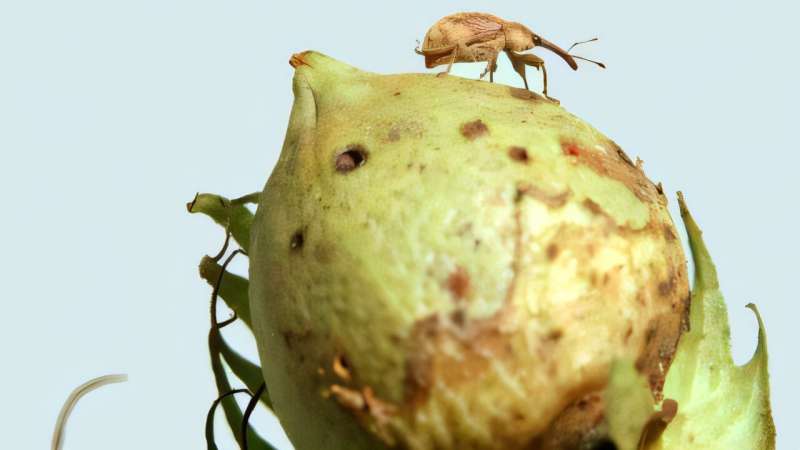Research has made significant strides in gene editing, leading to the development of plants that produce proteins making them indigestible to pests. This advancement promises to enhance crop protection and agricultural productivity. The findings, published in the Biotechnology Journal on November 12, 2025, come from a collaborative effort involving scientists from the Brazilian Agricultural Research Corporation (EMBRAPA) and the Genomics for Climate Change Research Center (GCCRC).
Historically, many crops, including corn, peas, and beans, have been vulnerable to pests that consume starch. These plants evolved to produce alpha-amylase inhibitors, proteins that prevent pests from digesting starch. However, the domestication process aimed at improving yield and palatability has inadvertently reduced these natural defenses. Researchers now see gene editing as a potential solution to reintroduce and enhance these inhibitors in crops.
In their article, the authors describe the progress made in the past two decades regarding gene editing technologies. They noted advancements in identifying genes responsible for producing alpha-amylase inhibitors from various plant species, evaluating their effectiveness against insect pests, and developing transgenic plants that overexpress these inhibitors. According to Marcos Fernando Basso, a leading researcher at GCCRC, the early 2000s marked significant milestones in understanding how these inhibitors work against specific insect enzymes.
Despite the scientific progress, traditional transgenic methods face challenges. The insertion of foreign genes into plant genomes often meets resistance from consumers and regulatory bodies, potentially limiting market acceptance and increasing costs. Insects such as bedbugs, beetles, and weevils produce enzymes that convert starch in crops into sugars, leading to economic losses and compromised food quality. These pests can proliferate rapidly, particularly in storage environments, posing significant threats to long-term grain preservation.
The research group emphasizes that enhancing the production of alpha-amylase inhibitors could effectively target these destructive insects. Notably, pests like the boll weevil, which damages cotton, and the coffee berry borer, which affects coffee plants, are of particular concern. By utilizing gene editing techniques, it may be possible to create crop varieties that produce higher levels of these inhibitors without impacting human digestion or harming non-target organisms.
Regulatory frameworks will play a critical role in the adoption of these advanced technologies. Using gene editing to modify a plant’s own genetic material could allow these crops to bypass stringent transgenic regulations set by the National Technical Commission on Biosafety (CTNBio). If successful, this approach could lead to greater market acceptance and commercial viability for agribusinesses interested in these innovations.
Basso concludes that the CRISPR gene editing technique offers promising prospects for increasing the efficacy of alpha-amylase inhibitors in crops. This targeted genetic modification could lead to plants that effectively deter pests while remaining safe for human consumption. As the agricultural sector continues to face challenges from pests and changing climates, such advancements in gene editing could prove invaluable in ensuring food security and sustainable farming practices.
For more details on the research, refer to the study by Basso and colleagues, titled “Exploring Plant α-Amylase Inhibitors: Mechanisms and Potential Application for Insect Pest Control,” published in the Biotechnology Journal.
